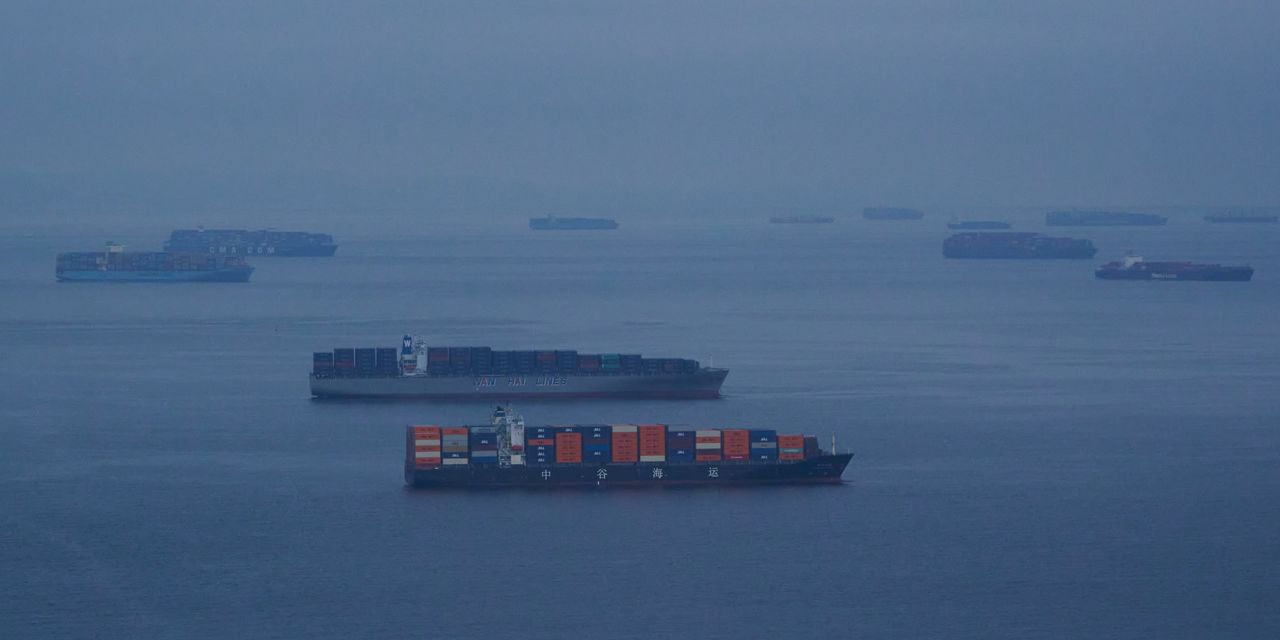
With the world’s 1.5 million sailors spending long stretches far from land, only about a quarter of them are fully vaccinated, ship operators, crewing agencies and industry trade bodies estimate.
The low rate of immunization is constraining the movement of crews as countries enforce new travel restrictions for people who haven’t gotten their shots.
Many ports in Asia require seafarers to wait seven to 10 days before disembarking to ensure they aren’t infected. Meanwhile, sailors traveling to port cities to start contracts are getting blocked at border crossings that require proof of full vaccination.
“Every time there is mutation, borders shut down. Governments stop people from moving, but they want cargo to move normally,” said Rajesh Unni, chief executive of Synergy Group, a Singapore-based ship-management and crewing company that runs more than 500 ships. “We had 56 countries tightening travel restrictions with Omicron and some sailors flying out from South Africa were diverted back and quarantined in hotels.”
Crew changes routinely take place in big gateway ports in China, Singapore, Los Angeles, Houston, the Netherlands and Belgium, with more than 150,0000 seafarers flying around the globe each month to connect with ships and replace colleagues who have been at sea.
Governments have been trying to balance efforts to curb the spread of Covid-19 against the need to keep products moving world-wide amid widespread supply-chain disruptions.
Several seafaring countries including the U.S., Indonesia and Greece have said they would recognize sailors as essential workers, but the difficulty of coordinating cross-border efforts has slowed progress, according to a senior Greek government official. Among the hurdles, the official said, is that many ports, airports and other entry points haven’t been clearly instructed to assign priority to sailors, and the sailors haven’t been given proper documentation for priority border checks and boardings.
The International Maritime Organization, the United Nations body that regulates global shipping, has repeatedly said the inability to rotate crews has emerged as the biggest challenge facing maritime operators. It has called on governments to recognize seafarers as essential workers for global supply chains and exempt them from travel barriers.
“They are still deemed not essential personnel, but without those workers you would get no food, medicine and other essentials,” said Jan Dieleman, president of Cargill Ocean Transportation, which that operates more than 700 ships and is a unit of American commodities giant Cargill Inc. “Sailors can’t travel or get priority for vaccines. It’s super complicated.”
The peak for stranded seafarers on ships came in late 2020 when nearly 400,000 had to work for months beyond their contracts, according to the International Chamber of Shipping, an industry trade body. The ICS, along with ship operators and crew managers, pegged the current number of stranded sailors at about 200,000.
ICS general secretary Guy Platten said the Omicron variant prompted governments to impose new restrictions on travel to the Philippines from Belgium and the Netherlands, and that the movement of goods is slower between France and the U.K. after Paris banned most travel for people coming in from England.
“Blanket regulations disrupt supply chains and transportation workers should have the right to go through,” Mr. Platten said.
Port authorities and nonprofits at ports such as Los Angeles, Long Beach, Rotterdam and Singapore now offer free vaccinations to sailors.
Protocols adopted by the International Maritime Organization call for crew members with Covid-19 symptoms to be isolated in cabins, with food and other supplies left outside the rooms by colleagues in surgical robes and masks. If an infected sailor deteriorates, the captain must find a port to let them out for treatment.
“We’ve had a number of countries refusing to take in sick sailors,” Mr. Unni said. “And once one crew member gets infected, chances are others will. The virus is not going away and we haven’t managed to get through political corridors and tell decision makers that this needs to be fixed.”
Some mariners who were able to disembark after completing voyages are having trouble getting home.
Adolpho Soledad, a mechanic, was supposed to be home in the Philippines this week to celebrate Christmas with his wife and four young children. He is instead in a hotel in South Africa.
Mr. Soledad is among thousands of travelers who had their flights canceled when the Omicron variant was discovered in the country in November. Having spent the past eight months traveling on a bulk carrier between Africa and China, he has yet to be vaccinated and has no idea when he will be allowed to travel.
“I managed to stay healthy and was really looking forward to getting back home to my family,” he said. “Now I’m stuck alone and every time I call home my younger daughter is in tears, begging me to come back. It breaks my heart.”
Write to Costas Paris at [email protected]
Copyright ©2021 Dow Jones & Company, Inc. All Rights Reserved. 87990cbe856818d5eddac44c7b1cdeb8








